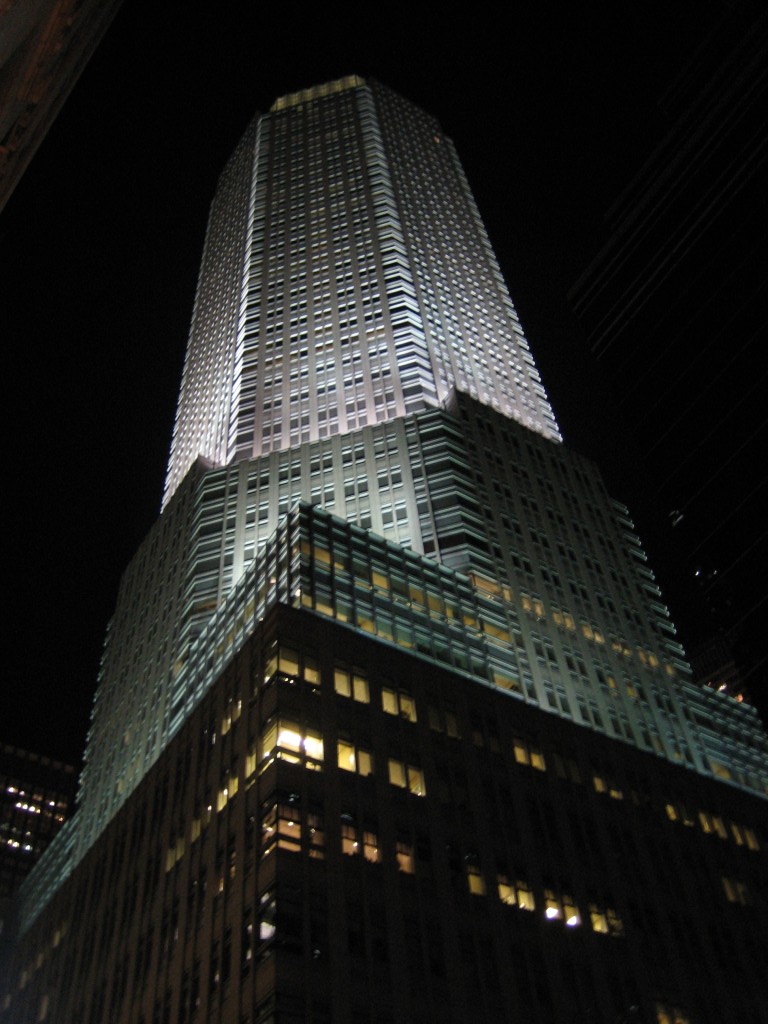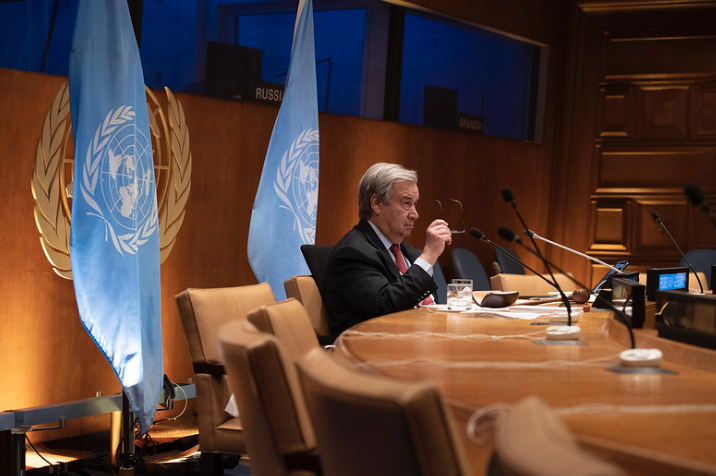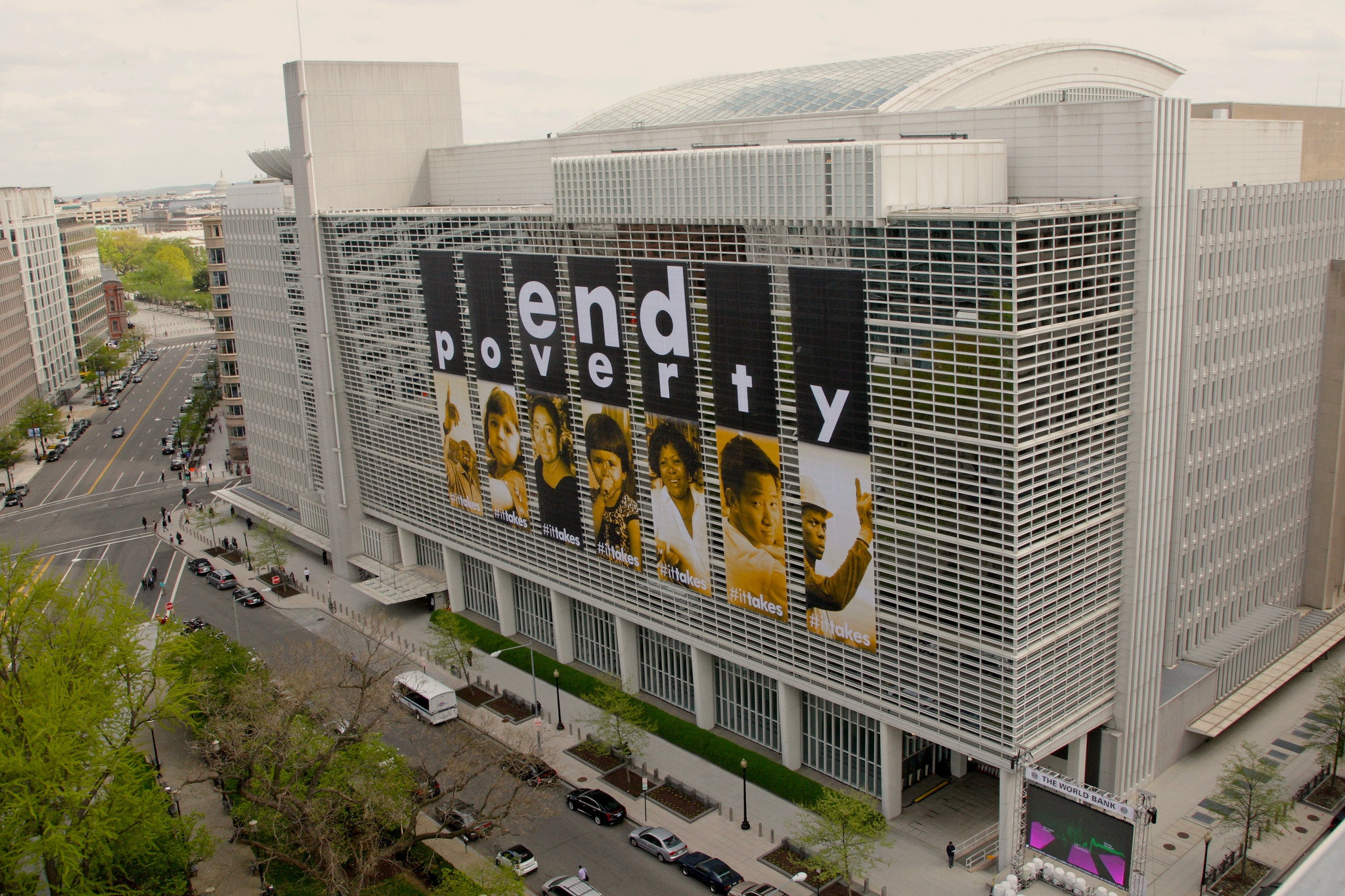John Smith confronts creditors’ response to the greatest debt crisis in history.

JPMorgan Chase world headquarters in Manhattan. (CC BY-SA 2.0, Wikimedia Commons)
By John Smith
OpenDemocracy
 In 2020, rich nations spent nearly $12 trillion, more than 31 percent of their combined GDP, to avert economic meltdown and cushion the effects of the Covid-19 pandemic on their citizens. This “fiscal stimulus” does not include monetary stimulus in the form of lower interest rates and central bank purchase of financial assets.
In 2020, rich nations spent nearly $12 trillion, more than 31 percent of their combined GDP, to avert economic meltdown and cushion the effects of the Covid-19 pandemic on their citizens. This “fiscal stimulus” does not include monetary stimulus in the form of lower interest rates and central bank purchase of financial assets.
In stark contrast, their response to the catastrophic economic effects of Covid on so-called developing countries in Africa, Asia and Latin America — described by World Bank president David Malpass as “worse than the financial crisis of 2008 and for Latin America worse than the debt crisis of the 1980s” — has been a kick in the teeth.
In November, Ken Ofori-Atta, Ghana’s finance minister, commented that
“The ability of central banks in the West to respond [to the pandemic] to an unimaginable extent, and the limits of our ability to respond, are quite jarring… You really feel like shouting ‘I can’t breathe.’”
Poor nations’ ability to respond to the pandemic is also hampered by woefully undeveloped healthcare systems. Average health spending per capita in high-income countries in 2018 was $5,562, 156 times higher than the $35.6 a year per capita spent in low-income countries and 21 times more than the $262 spent per head in ‘developing countries’ as a whole.
On the eve of November’s G20 summit, chaired by Saudi Arabia, UN Secretary-General Antonio Guterres warned that “the developing world is on the precipice of financial ruin and escalating poverty, hunger and untold suffering” and pleaded with G20 leaders for a proportionate response.

UN Secretary-General António Guterres during high-level event on financing for development in era of Covid-19, May 28, 2020. (UN Photo/Evan Schneider)
The G20 is really the G7 – that is, the seven leading rich nations, the U.S, the U.K,, France, Germany, Japan, Canada, Italy – in disguise. They wield the power, while the other 13 nations, including Brazil, South Africa, Saudi Arabia and India, lend legitimacy to their decisions.
The rich nations’ response to the catastrophe afflicting poor nations is the Debt Service Suspension Initiative (DSSI) — an offer for 77 “least developed countries” to suspend interest payments to official creditors (i.e. rich governments, the IMF and the World Bank) until June 2021. Suspended payments will be added to their already unsupportable debt and every single cent will have to be paid within five years.
In Latin America and the Caribbean, only Bolivia, Grenada, Guyana, Haiti, Honduras and Nicaragua qualify for these paltry benefits. The rest must continue to stuff money into the mouths of their creditors in rich nations without pausing for even a day, instead of using this cash to cope with their medical and economic emergencies.
Rescuing the Rich
But that’s not all. This debt “relief” only applies to interest owed to governments, not what they owe private lenders.
Even the World Bank has excluded itself from this minuscule generosity — David Malpass rejected calls to freeze $7 billion in interest payments owing to it, saying that forbearance would harm the bank’s ability to make new loans. As a result, only 41 percent of the $42.7 billion that DSSI countries owed in debt payments in 2020 is eligible for relief.
The suspension of interest payments to government creditors makes it easier for these desperately poor countries to service their debts to private creditors — such as Blackrock, JP Morgan, HSBC, UBS and the wealthy individuals they serve.

World Bank headquarters in Washington, D.C., in April 2013, during World Bank/IMF spring meetings. (Simone D. McCourte, World Bank Flickr, CC BY-NC-ND 2.0)
In other words, rich countries’ governments are not rescuing poor countries, they are rescuing rich investors in those poor countries.
As David Malpass (who was part of former President Donald Trump’s government before his appointment as World Bank head in 2019) has even admitted,
“There is a risk of free-riding, where private investors get paid in full, in part from the savings countries are getting from their official creditors.”
From the beginning, private creditors have been urged to participate in the DSSI by offering delays to interest payments, but they have intransigently refused to do so.
In November G20 leaders repeated these empty calls:
“There is a lack of participation from private creditors, and we strongly encourage them to participate on comparable terms when requested by eligible countries.”
As Stephanie Blankenburg, head of debt and development finance at the UN Conference on Trade and Development, said: “There is an agreement among the advanced and developing countries in the G20 to only represent creditor interests.”
So far, 44 countries have applied for relief under the DSSI, and a total of $5.4 billion in interest payments have been postponed, to be added to their total outstanding debt, which stood at $477 billion in 2018. These savings are equivalent to 2.2 percent of gross domestic product, or about a 10th of the fall in their tax revenues resulting from the pandemic.
To receive relief, DSSI countries must request a suspension of their interest payments, even though the act of making this request brings their creditworthiness into question and invites credit rating agencies to consider downgrading their debt, as has already happened to Ethiopia, Pakistan and Cameroon. Instead of getting debt relief, their borrowing costs have jumped, thereby increasing their debt burden.
According to Eurodad’s Daniel Munevar, the threat of this
“is being used to cower debtor countries into submission and force them to repay their debts regardless of consequences to public health. The costs… will be unfortunately measured in the millions of jobs and lives lost, not due to a devastating virus, but to… the global financial system.”
What About the Rest?

Shoppers in Manda Hill, Lusaka, Zambia, 2015. (Simon Berry, CC BY-SA 2.0)
The debt crisis facing the poorest countries is one facet of a colossal global debt crisis. Including the private and public debt of middle-income and rich countries, global debt now totals $277 trillion.
This increased by $6 trillion between 2012 and 2016, and by $52 trillion from 2016 to the end of September 2020, and is now equal to 365 percent of global gross domestic product — up from 320 percent at the end of 2019.
Even before the Covid-19 pandemic hit, the global capitalist economy was in intensive care, staving off depression thanks to extreme monetary policies such as negative interest rates and ballooning debt. Only a return to strong and sustained economic growth can avert a crisis qualitatively more profound than anything experienced in history, but there is absolutely no reason to expect this growth to materialize.
Six poor countries — Zambia, Ecuador, Lebanon, Belize, Suriname and Argentina — already defaulted on their debts in 2020, compared with only three during the global financial crisis.
The debt crisis now engulfing poor countries is just one manifestation of the profound structural crisis of the global economic system, a crisis from which there is no capitalist way out.
One person’s — or one country’s — debt is another person’s asset. Cancellation of debts owed by the many to the few is the only possible solution, and this is necessarily a revolutionary solution since cancellation of debts owed by the poor majority means cancellation of wealth owned by the super-rich minority.
All of progressive humanity can and must unite and act on the words of Cuba’s President Miguel Díaz-Canel, who, in his speech to the United Nations General Assembly on Sept. 22, 2020, called for the resumption of “the just struggle to write off the uncollectible foreign debt which, aggravated by the social and economic effects of the pandemic, is threatening the survival of the peoples of the South.”
John Smith is author of the prize-winning 2016 book Imperialism in the Twenty-First Century: Globalization, Super-Exploitation, and Capitalism’s Final Crisis, whose core arguments are summarised here.
This article is from OpenDemocracy.
The views expressed are solely those of the author and may or may not reflect those of Consortium News.



Great to see John Smith published at CN! His ‘Imperialism in the 21st Century’ is much more deserving of the hype Piketty’s ‘Capital in the 21st Century’ received. However it still amazes me how many quality Leftist writers consent to be published at openDemocracy. I know they have to put food on the table, and some seem to regard it as resistance to antisemitic conspiratorial thinking, but surely there must be ways to accomplish these ends without burnishing the reputation of an anticommunist billionaire.
“desperately poor countries”
Desperately poor countries don’t owe billions of dollars in debt.
What has happened is that instead of getting paid for their plentiful natural resources, they were given ‘debt’. For instance, instead of 1) owning the copper mines that once produced 25% of the world’s copper; or 2) collecting a windfall tax when the usually $2,000 per tonne copper went to $8,000 per tonne… instead of all of that, the government took on several billions of dollars in Eurobond debt.
With encouragement from the NM Rothschild*/IMF/World Bank/Anglo-American De Beers|Glencore, the internationally supported neoliberal government (in a field of neoliberal parties, so there is no real democratic choice, they would have all done the same thing), the government took on the Eurobonds. To repeat, intead of collecting taxes.
Inflation followed, and now there are more debt reschedulings, which were problematic even before the lockdown scam and resource grab.
* “In London, N M Rothschild & Sons took an early role in the new Eurobond markets.”
hXXps://web.archive.org/web/20140221060349/http://www.rothschild.com/our_history/1945-1980/